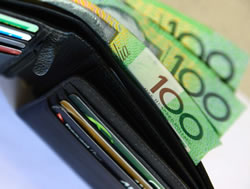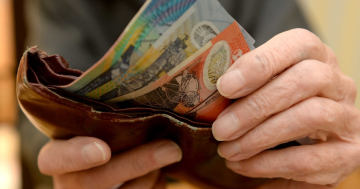Sam McKeith* says changing up their payday rituals could help people save money.
 When it comes to ways to save, one of the areas people can struggle with is how to effectively manage their cash on payday.
When it comes to ways to save, one of the areas people can struggle with is how to effectively manage their cash on payday.
Whether it’s making your money stretch until next payday, using payday as a way to save, or just making sure you can cover the financial curveballs life throws at you, it can help to have a money strategy for when your pay hits your account.
Getting on top of your payday routine when it comes to your cash could result in better financial outcomes down the line, less money stress, and potentially less debt.
With that in mind, here are some easy and painless personal finance hacks for payday.
Check your pay is correct, as soon as you get it
Before spending any of your pay, check that your employer is paying you the correct amount.
(It’s worth checking your super is being paid, too.)
Even after spending years at a company, mistakes can be made, so it makes sense to verify the amount on your paycheck.
It can be tough to chase up lapses in pay with accounts, especially if you leave it too long.
If, upon checking, you discover you’ve been underpaid, you should raise that internally.
If you discover systemic underpayment, you could consider whether a next step should be to consult with the appropriate authorities (e.g. the Fair Work Ombudsman).
Pay the important stuff first
It’s no secret it can be tempting to hit the bars or go shopping as soon as your pay hits your account.
But it can be a good idea to hold off, at least until you’ve made the important payments — you know, the ones that will stress you out if you run out of cash.
In practical terms, this means when your pay lands in your account, consider making payments towards all your fixed costs (e.g. rent, mobile and internet, insurance payments, and memberships and subscriptions).
Even better, you could set up automatic deductions that are timed to coincide with payday so you don’t even have to think about making these payments yourself.
What about savings?
So, you’ve been planning a holiday for years but never have the money.
That could be because you’re scraping by paycheck to paycheck.
If this tends to be you, one option is to set up a dedicated savings account and have your employer automatically deposit a portion of your paycheck into that account on payday.
If your employer can’t do this, an alternative is to transfer the money yourself on payday.
Consider an emergency fund
Good cash management also means putting funds away for a rainy day.
Setting up an emergency fund can be important, as you never know what could be around the bend.
Once you’ve decided to put some emergency funds away, you need to figure out how much you need.
According to ASIC’s MoneySmart site, a good way to start this process is to take a look around your home to see what you might need to repair or replace as a priority.
For instance, a transport issue, such as a car breakdown, might be something that you could fund with your emergency account if necessary.
Essential travel, say in the case of a death or serious injury to a friend or family, is another common reason to keep money aside.
Change your payday rituals
If you tend to blow a lot of cash on payday it can also help to look at your routine and change it up.
For instance, if you usually go out and buy yourself an expensive piece of clothing or eat at a restaurant for dinner, consider scheduling a less expensive activity for that timeframe.
*Sam McKeith is an award-winning writer, producer and director who brings a wealth of experience as a storyteller and journalist for a range of media outlets.
This article first appeared at spaceship.com.au.











